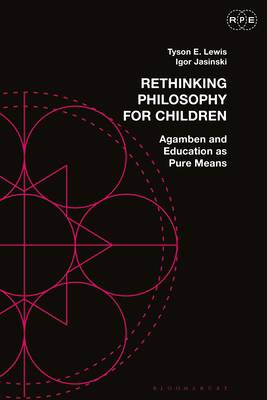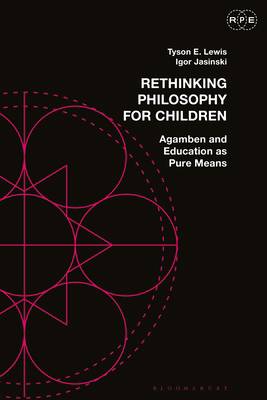
- Afhalen na 1 uur in een winkel met voorraad
- Gratis thuislevering in België vanaf € 30
- Ruim aanbod met 7 miljoen producten
- Afhalen na 1 uur in een winkel met voorraad
- Gratis thuislevering in België vanaf € 30
- Ruim aanbod met 7 miljoen producten
Zoeken
€ 254,45
+ 508 punten
Uitvoering
Omschrijving
This book is available as open access through the Bloomsbury Open programme and is available on www.bloomsburycollections.com.
What is philosophical about the practice Philosophy for Children (P4C)? In this book, the authors offer a surprising answer to this question: a practitioner's contemplation of the potentiality to speak, or what can be called infancy. Although essential to the experience of language, this most basic and profound capacity is often taken for granted or simply instrumentalized for the educational purposes of developing critical, caring, or creative thinking skills in the name of democratic citizenship. Against this kind of instrumentalization, the authors' radical reconceptualization of P4C focuses on the experience of infancy that can take place through collective inquiry. The authors' Philosophy for Infancy (P4I) emerges as a non-instrumental educational practice that does not dictate what to say or how to say it but rather turns attention to the fact of speaking. Referencing critical theorist Giorgio Agamben's extensive work on the theme of infancy, the authors philosophically engage the core writings of Matthew Lipman and Ann Sharp, foundational scholars in the P4C tradition, to rediscover this latent potentiality in the original P4C program that has yet to be developed. Not only does the book provide a new theoretical basis for appreciating what is philosophical in Lipman and Sharp's formulations of P4C, it also provides a unique elucidation of key concepts in Agamben's work-such as infancy, demand, rules, adventure, happiness, love, and anarchy-within a collective, educational practice. Throughout, the authors offer applications of P4I that will provide anchoring points to inspire educators to return to philosophical experimentation with language as a means without end.Specificaties
Betrokkenen
- Auteur(s):
- Uitgeverij:
Inhoud
- Aantal bladzijden:
- 168
- Taal:
- Engels
- Reeks:
Eigenschappen
- Productcode (EAN):
- 9781350133570
- Verschijningsdatum:
- 23/09/2021
- Uitvoering:
- Hardcover
- Formaat:
- Genaaid
- Afmetingen:
- 156 mm x 234 mm
- Gewicht:
- 412 g

Alleen bij Standaard Boekhandel
+ 508 punten op je klantenkaart van Standaard Boekhandel
Beoordelingen
We publiceren alleen reviews die voldoen aan de voorwaarden voor reviews. Bekijk onze voorwaarden voor reviews.








